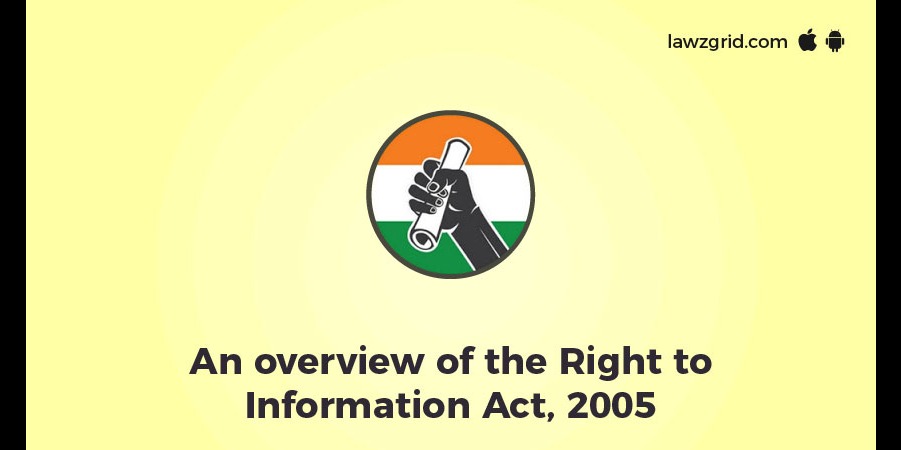

An overview of the Right to Information Act, 2005
The Right to Information Act,2005 was enacted with a view bring about transparency in the functioning of the Government Institutions in India. This Act is considered to be a revolutionary law enacted in the history of the Indian Laws since it was the first ever law which opened up the government departments and organizations to be scrutinized by the people.
An individual can seek information about any act or functioning of any government organization and the organization is bound by law to provide the information within the time span of 30 days failing which a fine will be imposed on the officer-in-charge of the organization or the department.
How to file RTI?
The law does not provide for any strict or cumbersome procedure for filing an RTI. It has been kept exceptionally simple and hassle-free. All that a person is required to do is write an application in the official language of the State may be in the format specified by the State Government. the application is to be addressed to the Public Information Officer of the department where from the information is required to be gathered.
The application is to contain all the specific questions and queries which is to be followed by the name and other details including the contact and the address details of the person. The Act is people friendly and makes a provision which states that if a person is illiterate then the same may tell all his requirements to the officer and the officer is bound to write it for such a person. The facility for an online application is also available for the masses.
Organizations required to give information under the Right To Information Act, 2005;
The Act mandates that various Government agencies be it the agencies belonging to the State Government or the Central Government come within the ambit of this Act. The list is highly exhaustive. The Act is formulated because a taxpayer’s money is spent.
Organizations exempted from the Right To Information Act, 2005;
The Act makes an exemption regarding twenty organizations to which the Right To Information Act does not apply. These organizations are related to the nations defense and intelligence services.
Also, the information regarding the following has been exempted under the Act;
Information relating to the national security, sovereignty, strategic, economic and scientific interest.
Information specifically ordered by the court not to be disclosed.
Information pertaining to the trade secrets and the intellectual property which may be considered to harm the position of some other party.
Information gathered under the fiduciary relationship.
Information pertaining to the Government information.
Information threatening the security and safety of the person.
Information that would create hindrances in the process of investigation.
Information pertaining to the cabinet papers.
Personal information not relating to the public interest.
The Act, however, provides an exemption the member of the Parliament and the State Legislatures stating that any information cannot be denied to them. The RTI Act serves as a watchdog over various organizations creating transparency and minimizing the menace of corruption.
What is Right to Information Act, 2005 and How to file an RTI application.

undefined






